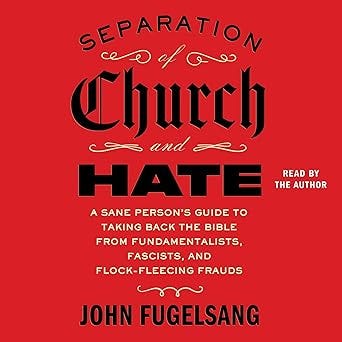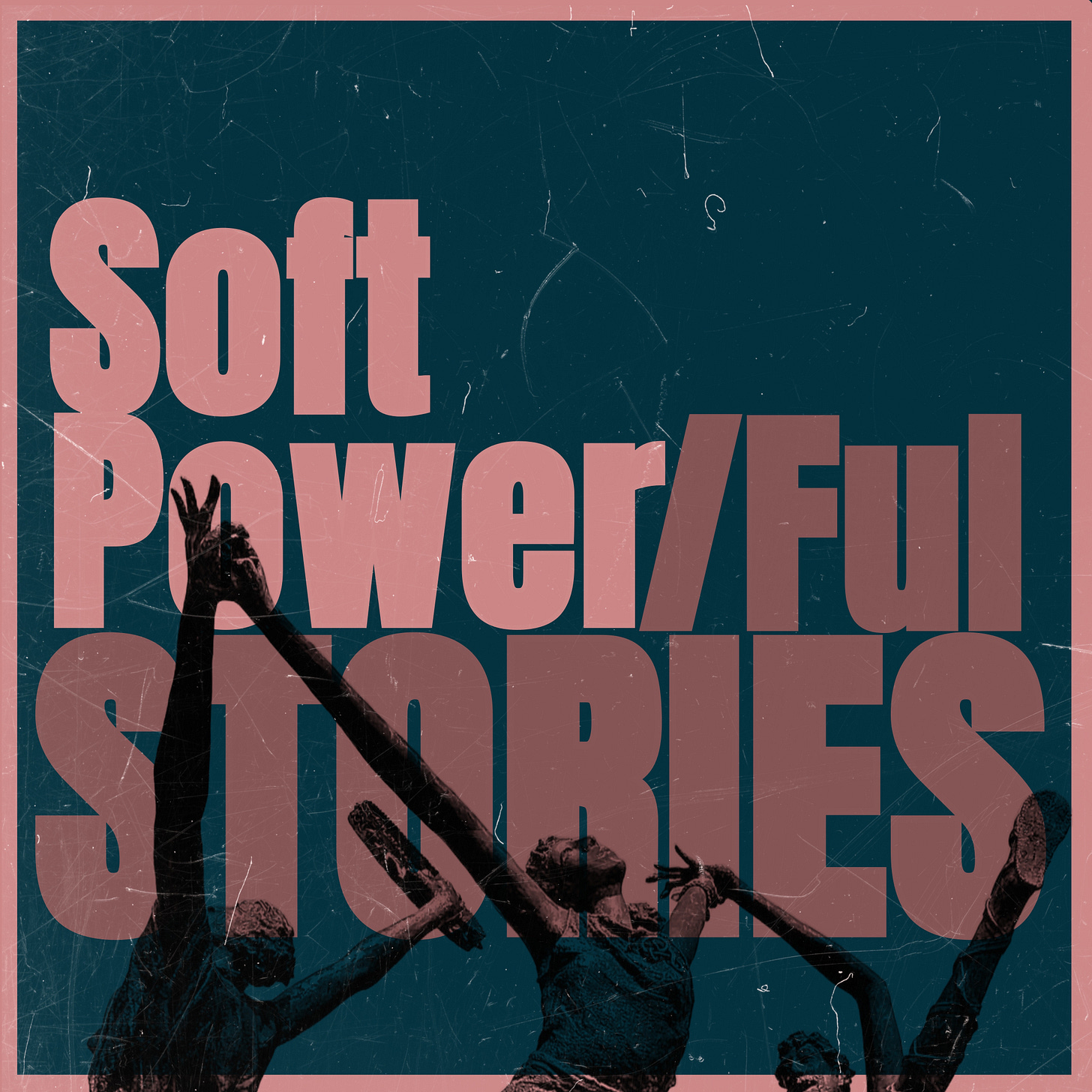Preparing for the No Kings Day Protest & Beyond
A Special Edition of the Million Mile Walker Dispatch
I’ve come across a new book and podcast to prepare for the upcoming No Kings Day protest and the necessary follow-up, which will illuminate the ethical stakes of resisting authoritarianism and reclaiming democratic values. A positive outcome to what should be the largest protest in our country’s history is only possible if we have an evident appreciation of the causes and the potential fallout of the growth of authoritarianism and cutting ourselves off from our true allies and partners around the world.
John Fugelsang’s Separation of Church and Hate is not just a book—it’s a reckoning. With the wit of a stand-up comic (with swearing), the soul of a preacher’s kid, and the fire of a political dissident, Fugelsang delivers a passionate and personal critique of how far-right ideologues have weaponized Christianity. Timed perfectly for the upcoming No Kings Day—a celebration of democratic humility and spiritual integrity—this book is a rallying cry for reclaiming faith from fear.
When I first heard Fugelsang, I was leery of his swearing but impressed with his wit and insights into the changes swirling around us today. His Christian-based worldview was encouraging, and then I realized he really knew the Bible and Jesus’s story. His spiritual roots are anything but typical. Raised by a former nun and a Franciscan brother who left their religious orders to marry, his upbringing was steeped in both reverence and rebellion. This paradox—devout yet defiant—shaped his understanding of Christianity not as a rigid doctrine, but as a living, breathing ethic of love. His parents’ story, told with tenderness and humor, becomes a metaphor for the book’s central thesis: that true faith often requires breaking with orthodoxy to follow a deeper moral compass.
Fugelsang’s knowledge of the Bible is considerable, but it’s his emotional connection to its teachings that sets him apart. He doesn’t quote scripture to win arguments; he invokes it to remind readers of Jesus’s radical compassion. His Jesus is not the sanitized figure of megachurch sermons, but the brown-skinned refugee who preached mercy, challenged empire, and died a political prisoner.
Fugelsang’s comedic voice owes much to one of my favorite comics, George Carlin, whose irreverent brilliance exposed the absurdities of American life. But where Carlin dismantled religion with cynicism, Fugelsang reconstructs it with hope. Theologians like Richard Rohr and scholars like Bart Ehrman, who explore the Bible’s historical flaws without discarding its spiritual power, informed his work.
The book dives into the messy history of biblical authorship: the contradictions, mistranslations, and political edits that shaped the canon. Fugelsang doesn’t shy away from these flaws. Instead, he argues that acknowledging them is essential to understanding the Bible as a human document inspired by divine love—not a weapon for control.
One of the book’s most timely themes is the hijacking of Christianity by far-right groups. Fugelsang names: Franklin Graham, Jerry Falwell Jr., Paula White, and Marjorie Taylor Greene, among others. These fraudsters have turned faith into a brand, selling fear and exclusion under the guise of righteousness. He critiques the rise of Christian nationalism, where Jesus’s image is recast as a gun-toting capitalist and the Sermon on the Mount is replaced by Fox News talking points.
Fugelsang’s analysis is sharp but never mean-spirited. He doesn’t mock believers; he mourns the distortion of their faith. He points out how the loudest voices in American Christianity often ignore the Bible’s central themes—mercy, humility, and service—in favor of power and profit.
On the divisive issue of abortion, Fugelsang dismantles the myth that Christianity mandates a single political stance. He notes that Jesus never mentioned abortion, and that early Christian communities prioritized maternal health and social support. He critiques the selective literalism of fundamentalists who ignore the Bible’s calls to care for the poor while obsessing over reproductive control.
On my primary concern of immigration, Fugelsang invokes the biblical command to “welcome the stranger,” arguing that anti-immigrant policies are antithetical to Christian ethics. He highlights how scripture repeatedly calls for hospitality, protection of refugees, and justice for the oppressed—values often absent from political discourse.
At its heart, Separation of Church and Hate is a love letter to the Christianity Fugelsang grew up with: one rooted in service, humility, and radical empathy. He celebrates figures like Dorothy Day, Dr. King, and Desmond Tutu—spiritual leaders who embodied the gospel’s call to justice. He praises Charities and other organizations that live out Jesus’s teachings through tangible acts of mercy.
Fugelsang’s writing pulses with urgency, especially as he prepares readers for No Kings Day. This symbolic holiday, which rejects authoritarianism and celebrates democratic values, aligns perfectly with the book’s message. Fugelsang reminds us that Jesus was not a monarch but a servant, and that faith should never be used to prop up earthly power.
In an era of political polarization and spiritual confusion, Separation of Church and Hate offers clarity. It’s not a theological treatise or a partisan declaration but a moral compass. Fugelsang urges readers to separate their faith from hate, their politics from fear, and their identity from tribalism. He calls for a Christianity that is brave enough to love, humble enough to serve, and wise enough to question. For those preparing to participate in No Kings Day Two and beyond, this book is essential reading. Separation of Church and Hate: A Sane Person’s Guide to Taking Back the Bible from Fundamentalists, Fascists, and Flock-Fleecing Frauds - Fugelsang, John: 9781668066898 - AbeBooks
With the dismantling of USAID and our country’s alliances and partnerships abroad in mind, “SoftStories” and “FulStories” are a timely podcast that reminds us of the power and importance of our country’s overseas programs. The termination of these programs will cost fourteen million deaths abroad by 2030 due to a lack of vaccines and basic food. Tragically, much of the funds for these programs are being diverted to countries that can provide us with “rare minerals,” not to mention the $20 billion bailout of Argentina, which will fill our coffers with Argentine pesos.
Producer and host Chris Wurst shares more than two decades of overseas experience as a US diplomat to explore the breadth and diversity of America’s SOFT POWER efforts around the globe for over half a century.
Each episode features powerful stories from ambassadors, artists, historians, and health care heroes, fearless Peace Corps alums, aid workers, authors, and global influencers who reflect the unique work and poignant stories that highlight the often-unsung connections and collaborations happening around the world. I’ve been interviewed twice, and my story will be added soon.
The podcast is a revealing tapestry of human connections, where foreign aid is not a transaction but a relationship—and where Peace Corps voices like Glenn Blumhorst, Betsy Small, and Flo Reed illuminate the real, often complicated, pathways to change. Blumhorst, a fellow PCV in Guatemala and longtime advocate for global service with whom I’ve worked, praises the series for its authenticity and emotional depth, noting how it reframes diplomacy through lived experience. Betsy Small’s episode, rooted in her struggles serving up-country in Sierra Leone, was inspiring since I’d worked there. At the same time, Flo Reed’s reflections on reforestation in Panama underscore the power of collaboration and grassroots resilience. Together, these stories challenge conventional narratives and offer a compelling argument for soft power grounded in humility, listening, and long-term commitment. Check out some of the ten stories completed so far. About this podcast | SoftPower/FulStories
It’s time to buckle up, stay informed, and actively promote a more peaceful, inclusive, verdant community—together.




Very timely blog. I still have to make my poster but I’ll have it done by the time we hit the square. The Soft/Powerful Podcast is wonderful. I’ve listened to 8 and can’t wait to hear more.